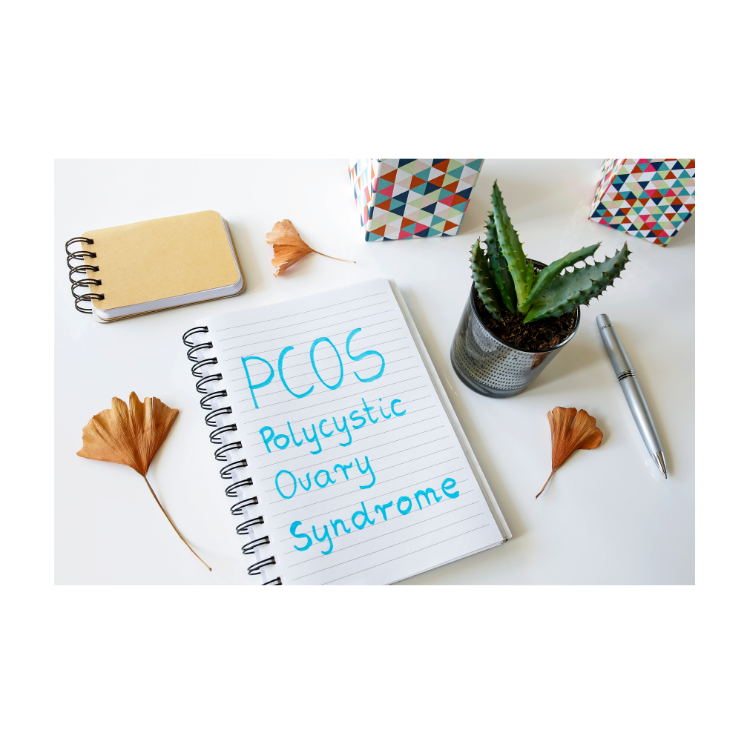Polycystic Ovarian Syndrome (PCOS)

Polycystic Ovarian Syndrome (PCOS) - Michelle Liddy, CNM
Polycystic ovary syndrome (PCOS) is a health issue that affects 1 out of 10 women of reproductive age. It represents a continuum of symptoms; some mild some severe which manifest as excessive or infrequent menses as well as symptoms of excessive male hormone (androgen) levels (acne and hair growth). When a woman has pcos, the ovaries may develop numerous small collections of fluid (follicles) and fail to regularly release eggs.
Symptoms
Symptoms of PCOS vary. Many women skip periods (some may only get 1-2 periods a year.) Some women may cycle more frequently. Facial hair growth, excessive body hair, acne, dark patches of velvety skin on the back of the neck and under arms, obesity, infertility, depression, diabetes and heart disease can all be associated with PCOS.
Diagnosis
We use Rotterdam Criteria to diagnose PCOS. A woman must have 2 out of 3 of the following to be diagnosed with PCOS. She must have ultrasound evidence of PCOS, signs of elevated androgen hormones (we can do this by drawing serum testosterone or even by looking at symptoms of acne and hair growth). The last criteria is history of skipping your period. It is very important to see your gynecology provider to establish this diagnosis as PCOS can increase your risk for uterine cancer, diabetes, infertility, and cardiovascular disease. Your provider can also help you manage acne, hair growth and obesity that affects many women in terms of body image and depression.
Management
While PCOS is not curable, the aim in treating it is in management of controlling the symptoms. If the patient is trying to get pregnant it is the most treatable form of infertility.
Obesity: Nutritional counseling is imperative with PCOS. If your body mass index is above 30 we generally will do a fasting 2 hour glucose test to prove insulin resistance. Insulin resistance increases obesity because the body is constantly in quick storing mode of calories rather than giving your body time to burn them and release them. With insulin resistance a drug called Metformin may help a patient lose weight. Since there are many adverse gastrointestinal side effects of Metformin so we generally have women try diet and exercise for 6 months first. Lowering body weight lowers many of those androgenic symptoms as above and will improve fertility. Lowering the weight can also improve or resolve the insulin resistance. Exercise and dietary change together are superior to any medication alone in decreasing risks of diabetes.
Irregular Cycles
Low dose oral contraceptives, Progestin based IUDs, and Nexplanon (a contraceptive implant) can help with menstrual cycle control. They also help reduce the risk of hyperplasia (which can be a precancerous condition in the uterus). Women need to shed their menstrual tissue every 8-12 weeks with a progestin medication called provera to protect the uterine lining from developing hyperplasia if they are not on a pill, progestin IUD or a progestin implant.
Hair growth
Oral contraceptives may help with unwanted hair growth as they inhibit ovulation and thus stop the overproduction of androgens (male hormones). Laser cosmetic therapy, vaniqua (a hair reducing cream) or metformin may help. A medication prescribed by some dermatologists called Sprionolactone is also helpful - but there are some concerns about using this in women who are not on a strict birth control regimen.
Cardiometabolic risk
Women who have PCOS have an increased risk of diabetes later in life. If they are also obese they have an increased risk of cardiac and other metabolic diseases. Controlling weight and not smoking is important in decreaseing these risks. Blood work to check kidney and liver function as well as glucose can help monitor for these conditions. All patients should have blood pressure monitored yearly and be tested for insulin resistance with a 75 gram fasting and 2 hours glucose test.
Depression
PCOS is associated with depression. Women should be screened for depression yearly. The obesity and androgenic side effects add to depression and frustration of body image.
Michelle Liddy, CNM
What your pregnancy ultrasound can tell you

SHARE